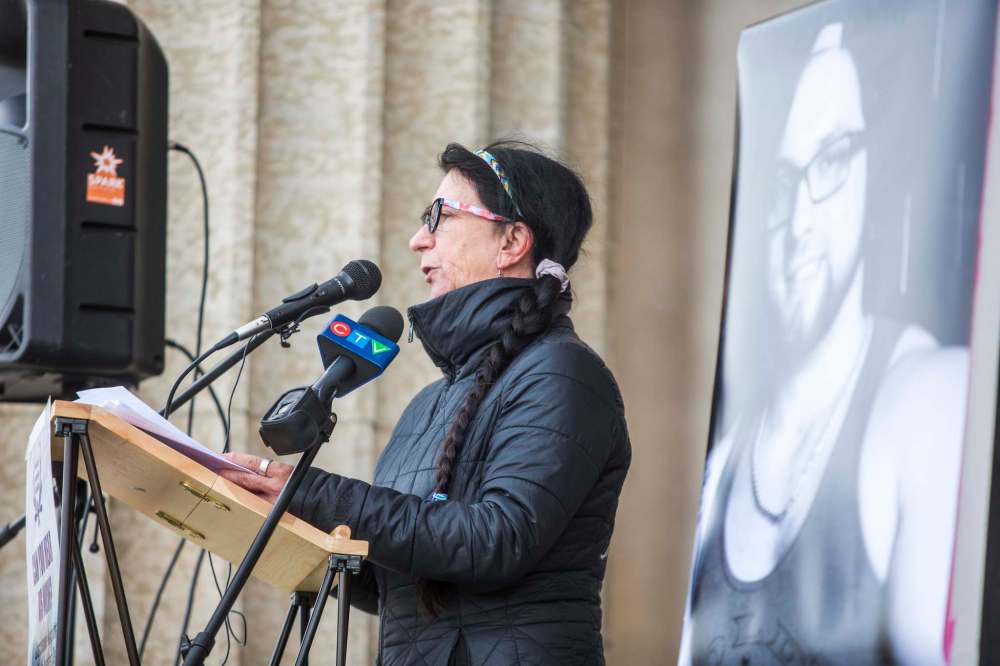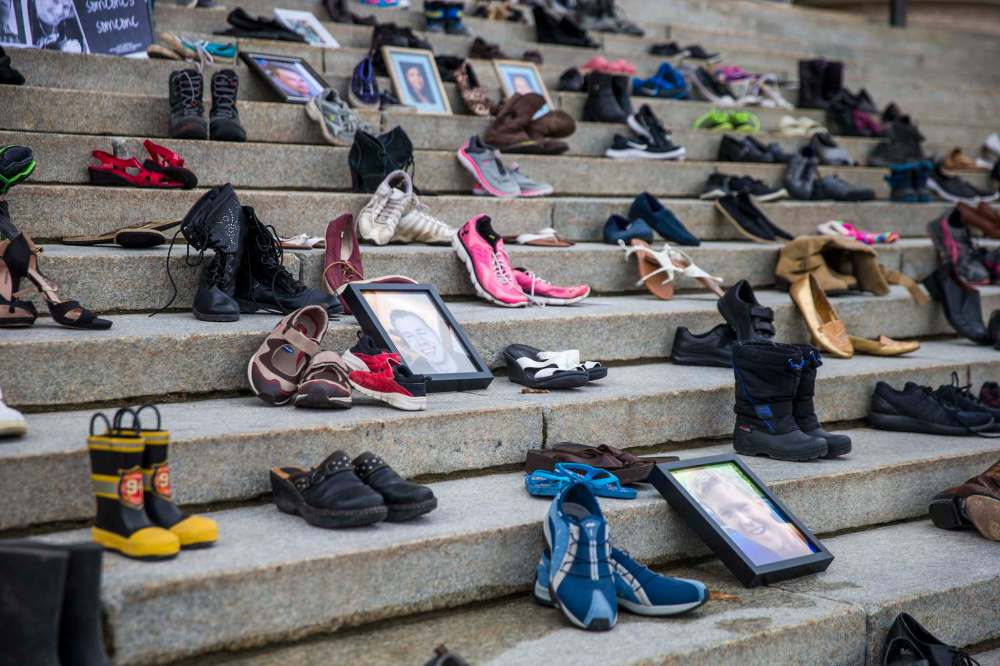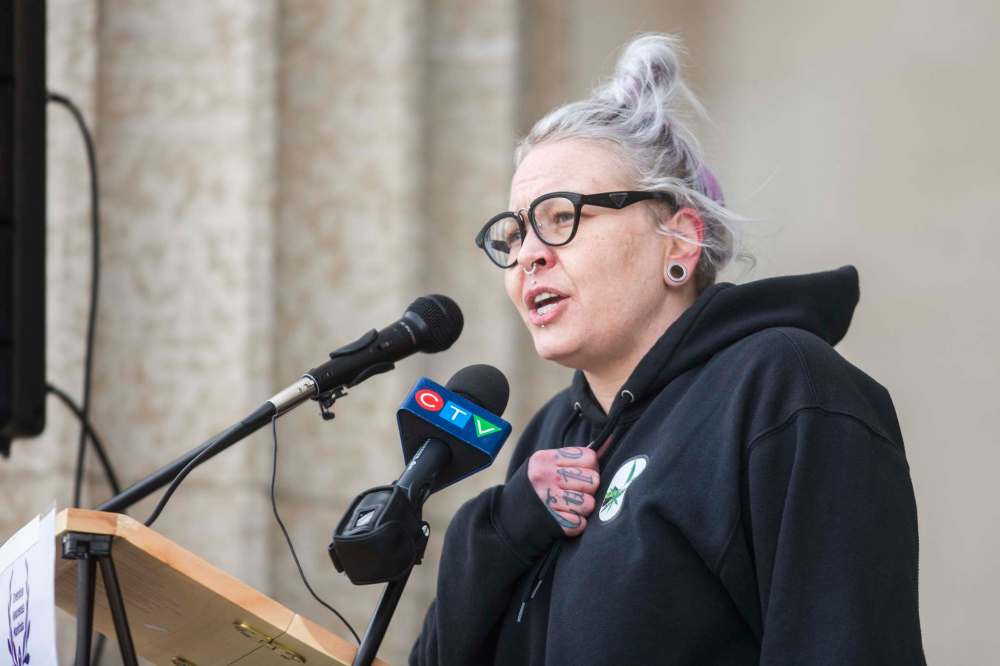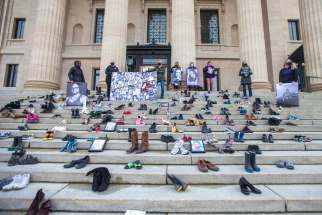Sharing stories, rallying for change Boosts needed in Manitoba addictions treatment support: advocates
Read this article for free:
or
Already have an account? Log in here »
To continue reading, please subscribe:
Monthly Digital Subscription
$0 for the first 4 weeks*
- Enjoy unlimited reading on winnipegfreepress.com
- Read the E-Edition, our digital replica newspaper
- Access News Break, our award-winning app
- Play interactive puzzles
*No charge for 4 weeks then price increases to the regular rate of $19.00 plus GST every four weeks. Offer available to new and qualified returning subscribers only. Cancel any time.
Monthly Digital Subscription
$4.75/week*
- Enjoy unlimited reading on winnipegfreepress.com
- Read the E-Edition, our digital replica newspaper
- Access News Break, our award-winning app
- Play interactive puzzles
*Billed as $19 plus GST every four weeks. Cancel any time.
To continue reading, please subscribe:
Add Free Press access to your Brandon Sun subscription for only an additional
$1 for the first 4 weeks*
*Your next subscription payment will increase by $1.00 and you will be charged $16.99 plus GST for four weeks. After four weeks, your payment will increase to $23.99 plus GST every four weeks.
Read unlimited articles for free today:
or
Already have an account? Log in here »
Hey there, time traveller!
This article was published 14/10/2020 (1891 days ago), so information in it may no longer be current.
On the front steps of the Manitoba Legislative Building, Arlene Last-Kolb reads a tearful letter to her son, Jessie, six years after his death from a fentanyl overdose.
Cascading down the steps below were 182 pairs of shoes — a visual reminder of the average number of Manitobans who die from such overdoses each year.

Last-Kolb, co-founder of Overdose Awareness Manitoba, was one of 10 people at a rally Wednesday in downtown Winnipeg — representing loved ones they’ve lost in recent years and continuing to push the provincial government for more publicly-funded, long-term drug treatment beds and wider access to a life-saving, overdose-countering medication.
One after another, mothers, sisters, cousins and partners spoke about the addictions that claimed the lives of the people they loved, and their struggles to get help. Most of them died while on wait lists for addictions treatment.
“Let’s hope by sharing your stories that we can bring some really great change,” Last-Kolb told the group.
“Let’s hope by sharing your stories that we can bring some really great change.”
– Arlene Last-Kolb whose son, Jessie, died from a fentanyl overdose
Overdose Awareness Manitoba is advocating for more medically-assisted detox spaces and publicly-funded treatment options. It also wants the opioid-overdose medication naloxone to be designated as an unscheduled substance in Manitoba, following similar moves by the regulatory bodies for pharmacists in B.C. and Alberta.
Neither the provincial health department nor the College of Pharmacists of Manitoba responded to requests for comment from the Free Press by deadline Wednesday.
In recent months, the province had announced it would expand naloxone distribution, pay for more beds for people with addictions at Winnipeg’s Health Sciences Centre, and implement legislative change to join a class-action lawsuit against opioid manufacturers.

No data is yet available on the number of fatal overdoses in Manitoba so far this year. The Office of the Medical Examiner told the Free Press it is in the process of compiling data for the first quarter of 2020.
For those gathered at the legislature Wednesday, the deaths aren’t just statistics.
Jody Wasserman’s brother, Josh Zeller, died at 36 in February 2019. He’d battled addiction for more than a decade, after being prescribed opioids for a back injury. When Zeller died, he was waiting for a phone call to let him know when he could get into treatment, Wasserman said. His family later learned there was still a four- to six-week wait.

There hasn’t been enough of a perspective shift to treat drug addiction as a health issue, Wasserman said.
“In leadership, government, all that, but also just in general, there is very much a stigma there… and I’m constantly trying to get every person to see that this is a disease, it’s not a choice. My brother didn’t choose that life. He didn’t want that life.”
Adam Parker, 21, was able to get into a private treatment facility, but six months later, he died of fentanyl poisoning. His cousin, Alisa Friesen, said Wednesday there was a clear lack of long-term planning and post-treatment support available to him. Despite the fact she was a youth care worker with knowledge of treatment options and community resources, she found the system too difficult to navigate to find the right help.
“I knew a ton about the community resources, but you can know all the resources in the world and nobody’s there to help you,” Friesen said.
“My cousin was not alone in feeling like no one cared about him and his addiction, but his life mattered.”
katie.may@freepress.mb.ca
Twitter: @thatkatiemay

Katie May is a general-assignment reporter for the Free Press.
Our newsroom depends on a growing audience of readers to power our journalism. If you are not a paid reader, please consider becoming a subscriber.
Our newsroom depends on its audience of readers to power our journalism. Thank you for your support.







